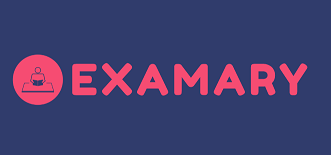What is ESG investing ?
ESG investing is a way of investing that takes environmental, social and governance factors into account. Approach does not consider just financial gain like traditional investing but also direct and indirect effects that business has on others. More and more socially conscious investors try to determine the ethics of the firm’s operations.
- Environmental factors to consider include pollution, animal welfare, waste management and natural resource conservation. They also help to evaluate environmental risks and consequence’s that a company might face.
- Social criteria look at the company`s relationships with others, for example employee compensations, human rights, community engagement.
- How the company is managing diversity in leadership and avoids conflicts of interest in their choice of board members, deals with executive pay issues and deals with shareholder rights. These are some of the factors that concerns governance.
Based on analyzing these three factors, ESG investing involves incorporating them into financial models. There is no universal approach on how to do this in practice. However, there are two broad strategy that are often used; positive and negative screening.
- Positive screening focuses on investments into companies that are considered top performers and is therefore often referred to, ‘best-in-class screening‘. It includes investing in companies that sell positive products or are actively supporting positive initiatives like green and renewable investing.
- On the other hand, negative screening is a strategy that avoids investing in certain companies. It could be based on their activity like avoiding those that are engaged in tobacco or fire arms production or in gambling activities. It could also be based on their history of human rights violation or committing fraud.
What are the pros and cons ?
For some, ESG investing goes further and addresses how a company serves all its stakeholders, from internal ones like workers and shareholders to external ones like their communities, customers, and environment.
One should be aware of that ESG investing has its shortcomings. There are no standardized approach on ESG ratings and scores between rating companies can vary drastically. Truth to be told, ESG factors are very difficult to analyze and there are many details to be consider. Also, there is a question on weightings. Will the company achieve a good score by donating money to communities while treating their waste badly? Or producing sources for green energy like windmills or solar panels while offering parts from suppliers that are big polluters? Conducting business by taking these factors into account is not a legal obligation in many countries, so companies do not have to provide ESG reports.
Misconceptions about ESG investing
Alongside pros and cons about ESG investing there are also some misconceptions. Growing body of research shows that ESG actually helps mitigate risk, meaning that investors don`t have to necessarily give up returns. For companies, it could mean higher initial investments but in the long run, being compliant with ESG factors, can brings positive results. For example, higher standard, better brand recognition and at the it brings higher values for its shareholders. Therefore, there is a constant growing number of companies that are willing to dedicate extra time and effort to achieve these goals. It is a practice that gains popularity and more and more investors are looking for opportunities to invest in such companies and also do good! Currently, Europe accounts for half of global ESG assets. However, the U.S. has the strongest growth followed by the next wave of expansion coming from Asia.
Want to learn more about ESG investing ?
If you are interested accelerating your career by mastering and incorporating environmental, social, and governance (ESG) factors in your skillset, there are several certification programs available. We`ll highlight a few of them related to financial industry. They all offer practical application and technical knowledge.
- First one on our list is organized by CFA institute. Its core program is (CFA®) or e Chartered Financial Analyst® . You can prepare for CFA with us – more information here. But it also offers a certification program in ESG investing. Here you can find more info about Certificate in ESG Investing.
- Second one is organized by Global Association of Risk Professionals (GARP). It is called Sustainability and Climate Risk (SCR®) Certificate and it prepares candidates to become climate risk specialist.
- And the third one is Chartered SRI CounselorSM (CSRIC®). Organized by The Forum for Sustainable and Responsible Investment (SIF) it provides financial professionals with knowledge about the trends, portfolio construction principles and best practices for sustainable investments.
- One more suitable for those not in finances: International Association for Sustainable Economy (IASE).
- And finally one with less flexibility around the exam dates, but puts heavier emphasis on ESG regulation and reporting standards: European Federation of Financial Analyst Societies (EFFAS).








